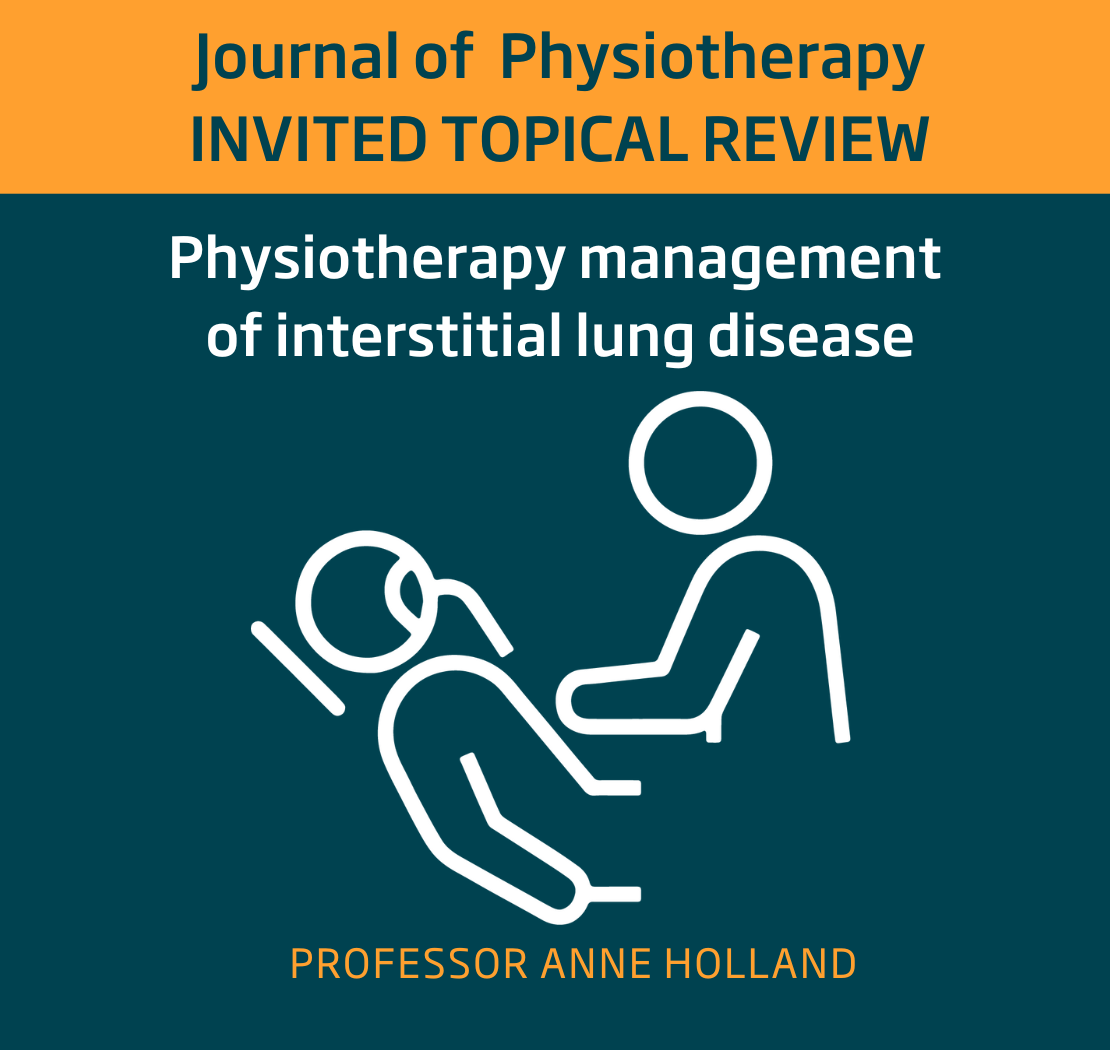Physiotherapy management of interstitial lung disease
The interstitial lung diseases (ILDs) are a group of over 200 chronic lung conditions characterised by breathlessness on exertion, troublesome cough, exercise intolerance, and poor health-related quality of life. Although each of the ILDs is relatively rare, collectively they affect a large number of people across the world, with an estimated prevalence of 82/100,000 people.
Although ILDs vary in underlying diagnoses and clinical course, comprehensive and supportive care is considered critical across all ILD subtypes to optimise clinical outcomes and patient wellbeing.
Physiotherapists make a critical contribution to the management of people with ILD. Key treatment goals include reducing symptoms, improving exercise capacity, enhancing self-management and improving health-related quality of life.
In her Journal of Physiotherapy Invited Topical Review, Professor Anne Holland provides a comprehensive summary of the classification and causes of ILD, the burden of this condition for individuals and the health system, and clinical features of ILD. The key elements of ILD care are presented, focusing on physiotherapist-delivered interventions, including pulmonary rehabilitation, supplemental oxygen, education, psychosocial support, symptom management, and end-of-life care. Future directions for research and practice are also discussed.
For more information and to read the entire Invited Topical Review article, click here.
This blog is a Physiotherapy Research Foundation (PRF) initiative supported by PAIN AWAY athELITE – Platinum and Content Sponsor of the PRF.


